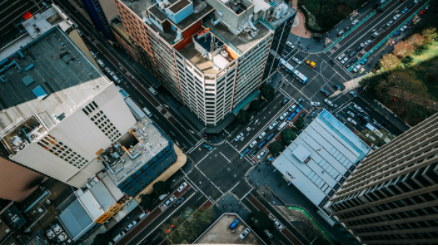
Cultural and religious communities, and particularly minorities, can only live with dignity if they have a “space.” To literally make space for people is a prerequisite for living together in our diverse urban centers. If dignity includes the possibility of self-determined action, these spaces must be designable and usable in a self-determined way.
This class focuses on politically, socially, and spatially marginalized communities in the urban centers of the UNIC universities and their access to dignified spaces. Of particular interest are cultural and religious communities that come to Europe through migration and international linkages and that need specific places and spaces that serve as meeting places to preserve cultural and religious identity. While the traditional church buildings in the inner cities are often used less and less for religious purposes, migrant communities only find space in the periphery of the cities – in former factory halls or as ‘subtenants’ in other church buildings.
This seminar aims to capture and make visible different perspectives on space and dignity of cultural or religious communities in diverse European cities. Students will locate and visit religious and cultural minorities in their respective hometowns. They will talk to people, take pictures, or record audio-visual data. In case of pandemic restrictions, they will reach these communities online. As such, the communities will be offered spaces to talk about their search for the space that enables them to live with dignity in their (new) neighborhoods. We aim to compare the situation in four cities (Cork, Rotterdam, Bochum, and Istanbul) and thus expand our analytical horizons of spaces of dignity.
This class focuses on politically, socially, and spatially marginalized communities in the urban centers of the UNIC universities and their access to dignified spaces. Of particular interest are cultural and religious communities that come to Europe through migration and international linkages and that need specific places and spaces that serve as meeting places to preserve cultural and religious identity. While the traditional church buildings in the inner cities are often used less and less for religious purposes, migrant communities only find space in the periphery of the cities – in former factory halls or as ‘subtenants’ in other church buildings.
This seminar aims to capture and make visible different perspectives on space and dignity of cultural or religious communities in diverse European cities. Students will locate and visit religious and cultural minorities in their respective hometowns. They will talk to people, take pictures, or record audio-visual data. In case of pandemic restrictions, they will reach these communities online. As such, the communities will be offered spaces to talk about their search for the space that enables them to live with dignity in their (new) neighborhoods. We aim to compare the situation in four cities (Cork, Rotterdam, Bochum, and Istanbul) and thus expand our analytical horizons of spaces of dignity.
- Kursleiter/in: Katharina Bauer
- Kursleiter/in: Ann-Kristin Götz
- Kursleiter/in: James Kapalo
- Kursleiter/in: Nazli Ozkan
- Kursleiter/in: Martin Radermacher
Semester: WiSe 2024/25
